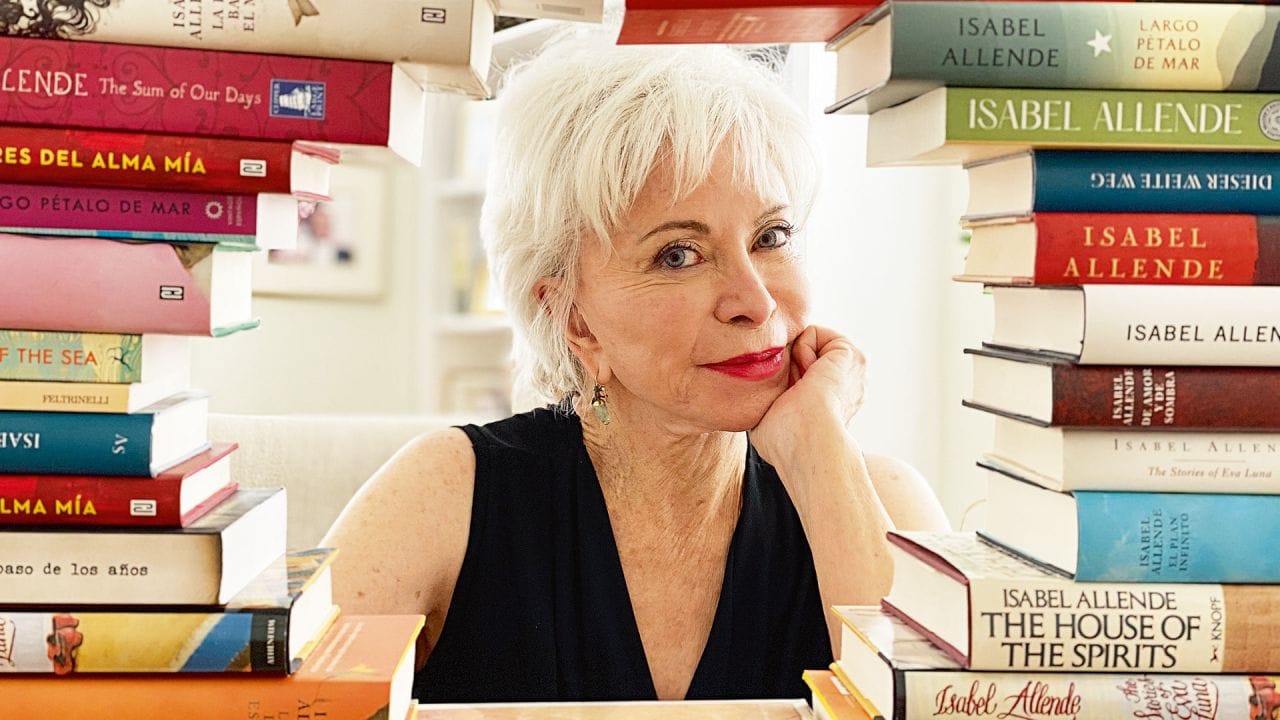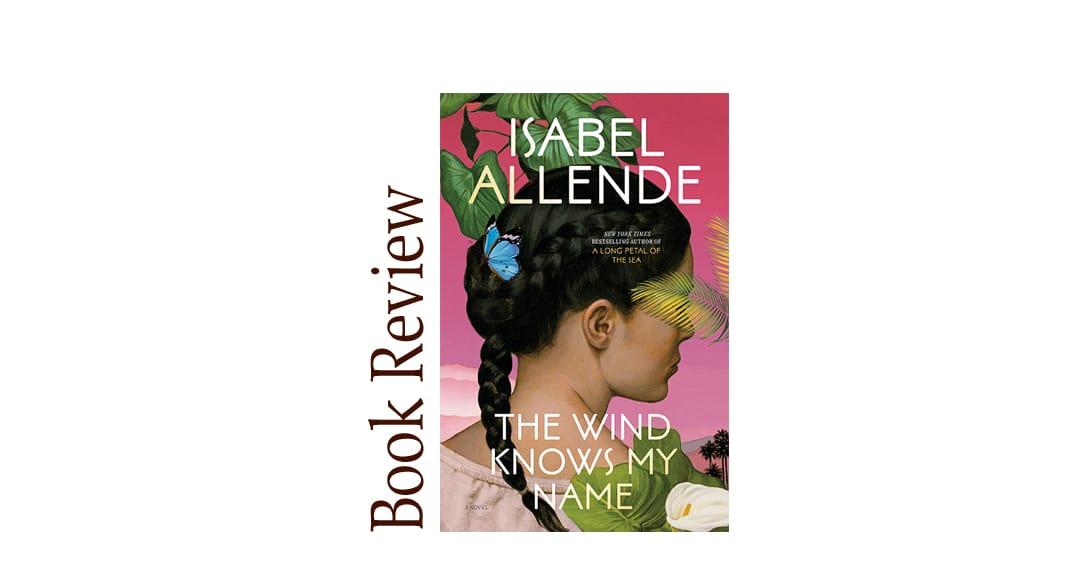- Date Published:
2023 - Length:
260 pages—Listening Time: 7 hr 59 minutes - Genre:
Fiction, Historical Fiction - Setting:
1938-2022; Vienna, Austria, El Salvador and United States - Awards:
Booklist Editors' Choice: Adult Audio 2023; Goodreads Choice Awards Nominee Historical Fiction 2023; NPR: Books We Love 2023; King County Library System Best Books Fiction 2023; Denver Public Library Staff Picks for Adults Fiction 2023; Denver Public Library: Nuestros libros favoritos en español Staff Picks in Spanish 2023 - Languages:
Dutch, English, German, Italian, Latin, Portuguese, Spanish - Sensitive Aspects:
Racism, antisemitism, xenophobia, sexual assault of a child, rape (mentioned), domestic violence, depiction of Kristallnacht and a pogrom, genocide, torture (mentioned), massacre (El Mozote), blood and violence, suicide, death, grief and trauma, forcible separation of children from parents, alcoholism (mentioned), war crimes, and the abuse of migrants and refugees - Movie:
There are no known movie deals for The Wind Knows My Name at this time. - Recommended for Book Club:
Yes.

It’s hard to read Isabel Allende’s The Wind Knows My Name without flinching. Every page hums with the ache of displacement, of childhoods interrupted, of the quiet terror that comes from being small in a world that keeps building walls. Allende weaves two stories, one set in 1938 Vienna, the other in modern-day America, but what she really reveals is one unbroken thread of loss: children torn from their homes, history, and the arms that should have been their safest place.
Because if anyone bears the weight of immigration policies, it’s the children.
In the United States today, more than 16.7 million people share a home with at least one undocumented family member. Thousands of those children are U.S. citizens, yet they live each day in fear that someone they love might vanish behind the cold machinery of deportation. As of late 2025, over 6,000 unaccompanied minors remain in federal custody each month, most of them teenagers but hundreds still under the age of 12. And beyond the numbers are stories that will keep you awake—like the 1,360 children still not reunited with their parents, six years after being forcibly separated at the U.S.-Mexico border. That’s nearly a third of the children taken from their families during that policy’s darkest years.
Across Mexico’s northern border, children are still arriving in shelters alone. Many start their journeys with a parent but arrive without one. Roughly two-thirds are separated somewhere along the way. They flee gang violence, hunger, or political collapse only to find themselves behind chain-link fences, facing trauma that will outlast their paperwork.
Allende understands that pain. She doesn’t write immigration as a headline issue; she writes it as a wound. Through her characters—a blind child separated by war, and a young girl navigating modern-day U.S. immigration courts—she demands that we see what the headlines often blur.
This isn’t just a novel about exile, it’s a mirror. And in the reflection, it’s the children who look back at us first.

Isabel Allende’s The Wind Knows My Name unfolds like a conversation across time about what it means to lose your home—and still find grace amid the rubble. It begins in 1938 Vienna, where a 6-year-old boy named Samuel Adler is sent away on a Kindertransport to escape the Nazis. All he has is his violin and the desperate hope that his parents will one day find him. From there, the story expands into the 21st century, where a young girl named Anita flees violence in El Salvador with her mother, only for them to be separated at the U.S. border.
These two children, born nearly a century apart, are connected not by blood but by experience—the trauma of being uprooted and the fragile courage it takes to keep going. As the years pass, their stories intersect through the quiet heroism of people who choose compassion: social workers, lawyers, friends who show up. Allende ties everything together with her usual warmth and empathy, tracing how history’s cruelty repeats itself in new forms but kindness does too.
For a book club, there’s so much to unpack here. The novel weaves historical fiction with current immigration issues, creating a dialogue between past and present that invites reflection rather than judgment. The themes of identity, generational trauma, and resilience ask readers to see the migration crisis—both then and now—as deeply human rather than political.
Allende doesn’t focus on tragedy alone; she’s equally invested in memory, love, and art as forces of survival. Samuel’s music, Anita’s imaginative world, the bonds of chosen family—all of it reminds us how people keep their humanity even when systems fail them. The Wind Knows My Name isn’t about grand heroics. It’s about endurance, small mercies, and the invisible threads that unite people across borders and decades. It’s the kind of novel that lingers, nudging your heart open just a little wider each time you think about it.

Readers With Wrinkles will find The Wind Knows My Name by Isabel Allende both heartbreaking and deeply human. Here are the key reasons this novel deserves a spot on your reading list:
Powerful intergenerational storytelling
Allende intertwines two eras—the 1938 Kindertransport of Jewish children fleeing Nazi Austria and the 2019 U.S.–Mexico border crisis—showing how displacement and survival echo across generations.
Compassionate portrayal of refugees
The novel humanizes migration by focusing on children separated from their parents, drawing emotional parallels between Samuel Adler, a Jewish refugee, and Anita Díaz, a Salvadoran girl caught in America’s “zero tolerance” policy.
Emotional depth and humanity
Allende captures the resilience of the human spirit against unimaginable suffering. Her lyrical prose transforms pain into empathy, making readers reflect on their role in a world still marked by injustice.
Relevance to today’s world
Though historical in parts, the book highlights ongoing humanitarian crises — reminding us that family separation, exile, and the search for belonging are not relics of the past.
Rooted in real-life inspiration
Characters like Selena Durán, a social worker aiding child refugees, are inspired by real organizations such as the Florence Refugee and Immigrant Rights Project, anchoring Allende’s fiction in activism and truth.
A tribute to courage and connection
Ultimately, this novel is a love letter to children who endure displacement yet find strength in imagination, kindness, and chosen family—a hallmark of Allende’s lifelong advocacy for justice and humanity.
Allende’s signature narrative style
Fans of The House of the Spirits will recognize the sweeping reach of her storytelling—vivid settings, historical depth, and emotional vulnerability that turns tragedy into art.
Ideal book club selection
The dual timelines, morally charged conflicts, and nuanced characters spark rich discussion about identity, resilience, and how history repeats itself through the lives of children.


Purchase Isabel Allende Books
One of the world's most talented female writers ever. Get your copy of The Wind Knows My Name or one of Isabel Allende's other great novels.
Bookshop.org was created as a socially conscious alternative to Amazon, with the goal of helping local, independent bookstores thrive. This is why Readers With Wrinkles supports their efforts. Please join us in this effort by purchasing your next read here.

Readers who loved Isabel Allende’s The Wind Knows My Name often seek other moving, character-driven novels that blend history, migration, generational trauma, and the resilience of the human spirit. Here are several standout read-alikes.
- A Long Petal of the Sea by Isabel Allende
Set during and after the Spanish Civil War, this sweeping epic follows a young medical student and a pianist forced into exile, whose lives intertwine across decades and continents. It’s a profound meditation on displacement, refuge, and love rekindled through history’s upheavals. - The Beekeeper of Aleppo by Christy Lefteri
Nuri and Afra, beekeepers from war-torn Syria, embark on a perilous journey across Europe after their world collapses. Lefteri’s luminous novel explores how the fragile beauty of love can endure, even as memory and home are stripped away—a perfect follow-up for readers moved by Allende’s migrant stories. - Fruit of the Drunken Tree by Ingrid Rojas Contreras
Through the intertwined voices of two young girls in 1990s Bogotá, one privileged and one displaced by violence, this semi-autobiographical novel reveals innocence tested by political chaos and class division. It’s an unforgettable story of female strength and compassion amid danger. - The Storyteller’s Secret by Sejal Badani
This multigenerational tale connects a present-day journalist in search of meaning with her grandmother’s experiences in British-ruled India. Themes of grief, heritage, and storytelling as of survival make it a haunting match for Allende’s emotionally layered fiction. - An Unlasting Home by Mai Al-Nakib
A richly detailed saga spanning Lebanon, Kuwait, and Iraq, this novel traces three generations of Arab women confronting war, identity, and exile. Like Allende, Al-Nakib illuminates how history and politics shape private destinies and the bonds between mothers and daughters. - The Exiles by Christina Baker Kline
Set in 19th-century Australia, this engrossing historical novel follows three women—an orphan, a convict, and an Indigenous girl—whose fates entwine in exile. It’s a powerful examination of female endurance and the search for belonging across unforgiving landscapes. - Mother Doll by Katya Apekina
Spanning four generations of Russian women linked by trauma and transcendence, Apekina’s novel fuses realism and supernatural threads with dark humor and raw emotion. Fans of Allende’s magical realism with a conscience will find the same electric depth here. - We Were the Lucky Ones by Georgia Hunter
Inspired by a true story, this novel follows a Jewish family’s harrowing separation and unlikely survival during the Holocaust. It’s a deeply moving narrative about faith, fate, and the unbreakable will to reunite across continents and wars. - A Fire Sparkling by Julianne MacLean
After uncovering shocking secrets about her grandmother’s role during World War II, a woman embarks on a journey that redefines everything she knows about love and courage. Time-shifting and emotional, it echoes Allende’s blend of history and redemption. - Migrations by Charlotte McConaghy
Blending environmental urgency with themes of loss and belonging, this lyrical novel follows a solitary woman tracking the last migrating Arctic terns. It’s both elegy and odyssey, perfect for readers drawn to the emotional scope and cross-border storytelling of The Wind Knows My Name.
|
|
|


Comments